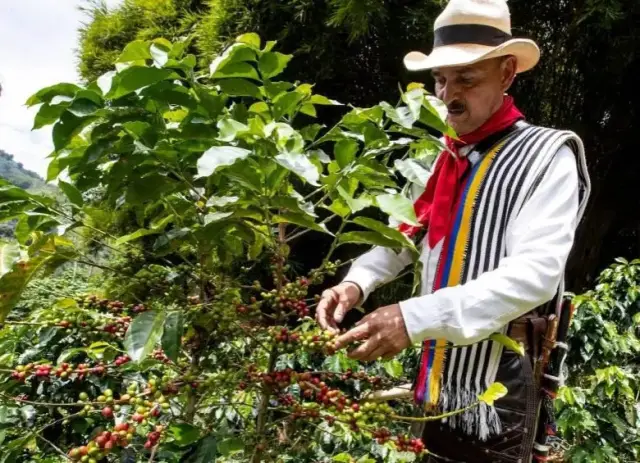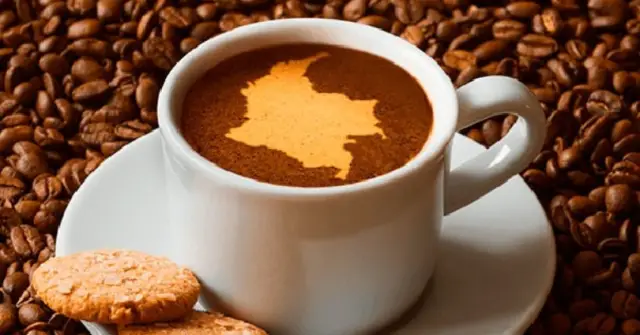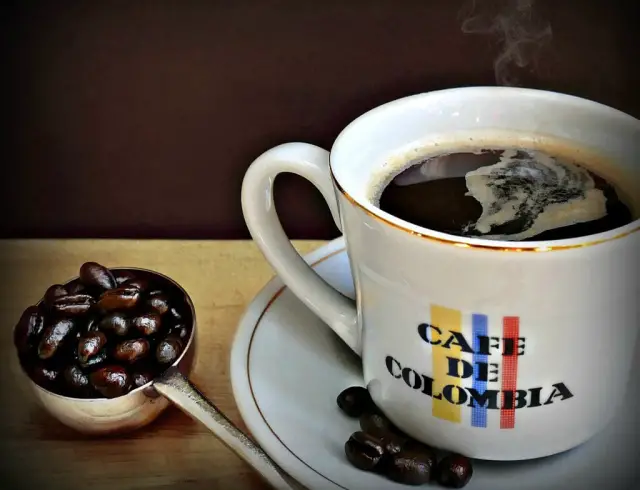Every June 27th , Colombia celebrates National Coffee Day , an emblematic date that pays tribute to the tireless work of thousands of coffee farmers and exalts the importance of coffee as a national symbol. From the verdant mountains of the Coffee Region to the family farms that painstakingly cultivate each bean, this day celebrates not only a beverage but also a cultural, social, and economic heritage deeply rooted in the Colombian heart.
This date, promoted by the National Federation of Coffee Growers , invites both consumers and producers to reflect on the impact of coffee on the country's history, rural development, and international image. It's not simply about enjoying a cup, but about recognizing the collective effort behind each sip and the passion that sustains one of Colombia's most representative industries.
Importance of National Coffee Day in Colombia
Origin and purpose of the celebration
National Coffee Day was established to recognize the fundamental role that coffee plays in Colombian identity. Its objective is to highlight the work of more than 500,000 families who depend on this crop, in addition to promoting the consumption of Colombian coffee nationally and internationally.
More than just a holiday, this date represents a platform to highlight the life stories of coffee farmers, promote education about sustainable practices, and strengthen a sense of belonging around coffee as the country's intangible heritage. It is an opportunity for new generations to understand the value of work in the fields and the essential role of coffee in the national economy.
An engine of the rural economy
Coffee represents nearly 15% of Colombia's agricultural GDP and is the economic lifeline of many rural areas. It is also one of the country's flagship export products, making it a symbol of development and international connection.
In addition, it generates more than 700,000 direct and indirect jobs , boosting trade, tourism, and industrial transformation. Coffee is not just an agricultural product; it's an ecosystem that stimulates the economies of hundreds of municipalities, fosters rural entrepreneurship, and strengthens the country's social fabric.

Why is Colombian coffee so special?
Unique geographical conditions
Colombia enjoys privileged climatic conditions : high altitudes, volcanic soils, regular rainfall, and a location close to the equator. This allows for the cultivation of high-quality mild Arabica varieties, prized for their balanced flavor, delicate acidity, and profound aroma.
These conditions vary from region to region, resulting in distinct and nuanced cup profiles. For example, Huila coffee stands out for its sweetness , while Nariño coffee is characterized by its bright acidity . This diversity makes Colombian coffee a sensory experience that transcends borders and ranks among the most award-winning in the world.
Tradition and technique in the harvest
Unlike other regions, in Colombia, the harvest is done manually. Pickers select only the ripe beans, ensuring a superior cup of coffee. This technique, passed down from generation to generation, is part of the country's coffee DNA.
Harvesting is meticulous, requiring skill and knowledge, and reflects the coffee-growing families' commitment to quality. Each bean is a symbol of human effort and represents an artisanal process combined with technological innovation to offer a product that honors its roots.
Celebrations on National Coffee Day
Cultural events and fairs
On this day, numerous activities take place in coffee-growing municipalities: food fairs, art exhibitions, cupping competitions, and folklore parades that reflect the coffee identity. These celebrations also include barista competitions, roasting demonstrations, and community gatherings that honor the work of farmers.
Example of events :
Manizales Coffee Festival : with exhibitions, specialty coffee samples, and cultural performances.
Quindío Coffee Route : a sightseeing tour of coffee farms with interactive workshops.
Art exhibitions in Salento and Pijao : where art, music and coffee tradition come together.
Promotions and campaigns in coffee shops
Major coffee chains and local stores are launching special campaigns offering free tastings, promotions, and educational talks about the coffee process. They are also encouraging local consumption to strengthen the domestic market.
This day is also used by small producers to showcase new brands, launch innovative products such as cold brew or capsule coffee, and open spaces for dialogue on fair trade, traceability, and sustainability.

Support for Colombian coffee growers
Government and private initiatives
Organizations such as the National Federation of Coffee Growers of Colombia (FNC) promote sustainability programs, price improvements, and technical training. Campaigns such as "Take Colombian Coffee" seek to raise consumer awareness about the importance of supporting local producers.
In addition, there are incentives for young rural entrepreneurs, coffee plantation renovation programs, access to technology, and women's empowerment projects in coffee-growing regions. Empowering coffee growers is vital to ensuring the continuity of Colombia's coffee legacy.
Coffee tourism: a unique experience
Rural tourism has gained momentum in areas like the Coffee Region. Visitors can experience harvesting, roasting, and preparing coffee, while learning the stories behind each farm.
Tourist farms offer lodging, interactive activities, guided tastings, and immersive experiences that connect visitors with coffee culture. This trend has helped diversify the income of coffee-producing families and strengthen the local economy.
How to celebrate National Coffee Day from home
Buy 100% Colombian coffee , preferably from origin, to directly support the producers.
Visit a local coffee shop and enjoy a handcrafted brew prepared by a certified barista.
Share content on social media with the hashtag #OrgulloCafetero to spread coffee culture.
Learn about Colombian coffee by watching documentaries like "Coffee: A Story of Aroma and Tradition" or reading specialized blogs.
These simple actions contribute to appreciating a product that is more than a beverage: it is history, territory, and community. By consuming Colombian coffee, you are investing in rural development and preserving a tradition that is a source of national pride.

Frequently Asked Questions About National Coffee Day
When is National Coffee Day celebrated in Colombia?
Every June 27th, a date established to pay tribute to coffee growers and promote the consumption of Colombian coffee, highlighting its cultural and economic importance.
What makes Colombian coffee unique?
Its altitude, climate, Arabica variety, and manual harvesting make Colombian coffee one of the most prized in the world for its smoothness, aroma, and perfect balance in the cup.
Who organizes the National Coffee Day celebrations?
The National Federation of Coffee Growers and various local municipalities organize events, fairs, and educational activities to highlight the work of coffee growers.
Where can I buy authentic Colombian coffee?
In specialty stores, local cafes, and platforms such as Juan Valdez, Café San Alberto, Pergamino, Café La Palma, and El Tucán, among others.
What impact does coffee have on the Colombian economy?
Coffee is one of the pillars of Colombian agriculture and supports more than half a million families, driving rural development and generating large-scale employment.
Coffee pride: a tradition that unites Colombia
National Coffee Day isn't just a commemorative date; it's an opportunity to recognize the dedication of those who cultivate each bean with passion and dedication. Celebrating it also means supporting the development of rural communities, appreciating the country's natural wealth, and enjoying a beverage that unites generations. From a morning cup to a conversation among friends, Colombian coffee represents much more than flavor: it represents identity, effort, and national pride.
Consuming it consciously, supporting local produce, and sharing its history is the best way to pay tribute to this tradition that identifies us to the world.
